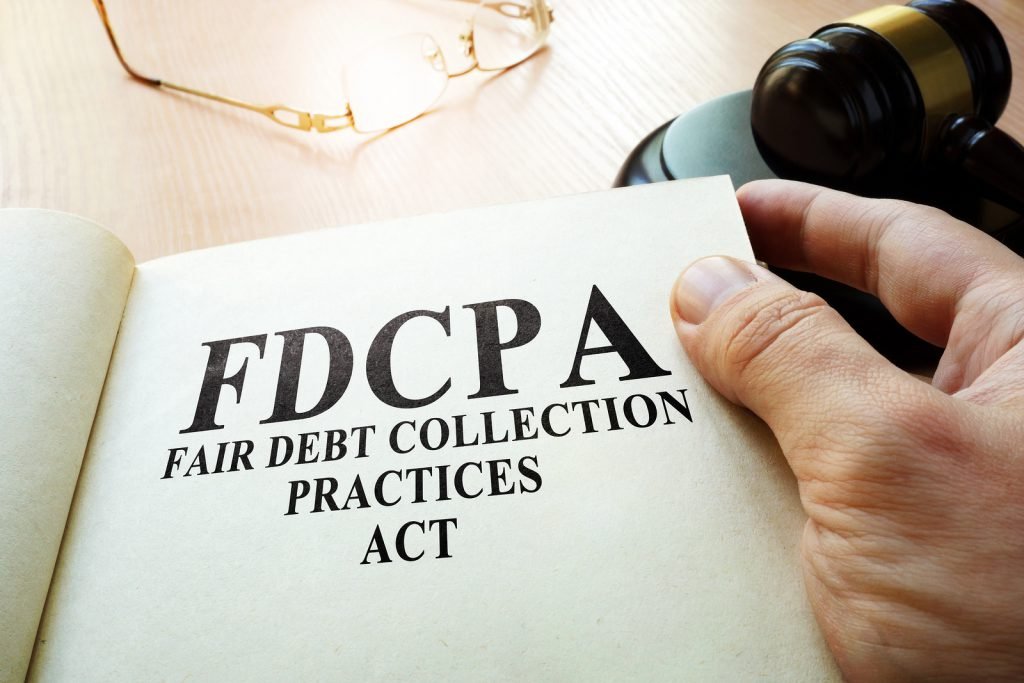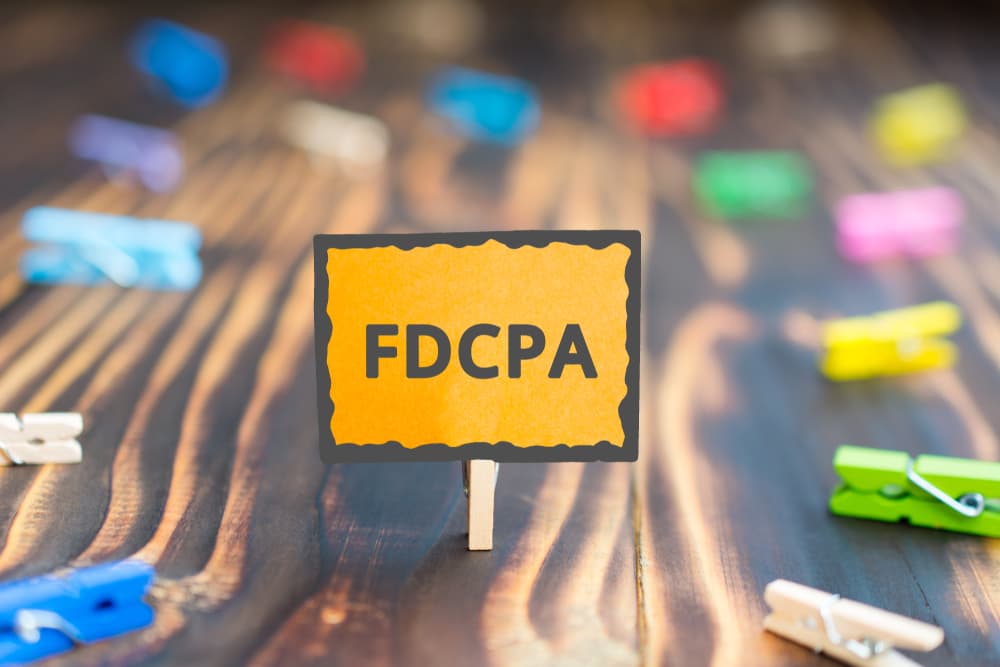
What Is The FDCPA?
If you’ve ever been contacted by a debt collector, you’ve probably wondered about your rights and what they can or can’t do. While dealing with debt can be stressful, the Fair Debt Collection Practices Act (FDCPA) was created to protect consumers from aggressive, unfair, or deceptive practices used by debt collectors. The law ensures that you’re treated fairly and with respect throughout the process.
The FDCPA is not only a tool to protect consumers but also to create a level playing field for reputable debt collectors. It helps ensure that businesses in the debt collection industry operate in an ethical manner, without resorting to abusive tactics. In this article, we’ll break down what the FDCPA is, how it works, and how it can benefit you if you’re facing debt challenges, including those looking into options like debt consolidation.
What Is the FDCPA and Why Was It Created?
The Fair Debt Collection Practices Act (FDCPA) is a law passed in 1977 by the U.S. Congress to protect consumers from unfair practices in the debt collection industry. The law regulates how debt collectors can interact with consumers and sets clear boundaries for acceptable practices.
Before the FDCPA, many consumers were harassed by debt collectors who used threats, intimidation, and even physical abuse to collect money. Some of these practices went unregulated, and many individuals found themselves overwhelmed by constant phone calls, public humiliation, and unfair demands. The FDCPA was created to put an end to these abusive methods while still allowing debt collectors to recover owed debts.
Under the FDCPA, consumers are granted a set of rights that ensure they are not treated unfairly or abusively by debt collectors. This includes rights to privacy, respectful treatment, and fair handling of disputes regarding debt.

Key Provisions of the FDCPA
The FDCPA includes several important provisions that protect consumers from unfair debt collection practices. Let’s go through the most important rules that debt collectors must follow:
- Prohibited Contact Methods Debt collectors are restricted in how and when they can contact you. They cannot call you at unreasonable hours—usually between 8 a.m. and 9 p.m.—and they are not allowed to call you at work if you’ve requested they not do so. If you want them to stop contacting you altogether, you can send them a written request, and they must comply.
- Harassment and Abuse Debt collectors are prohibited from using harassment, abuse, or threats to intimidate you into paying. This includes:
- Using profane language or threats of violence
- Calling repeatedly with the intent to annoy
- Threatening arrest or other unlawful actions
- Misleading or Deceptive Practices Debt collectors are not allowed to mislead you about the amount of debt owed, or falsely claim that they are attorneys or government officials. They are also prohibited from falsely implying that nonpayment will result in arrest or legal action when that is not the case.
- Accurate Information Debt collectors are required to provide you with clear and accurate information about the debt. They must notify you in writing about the debt they are collecting, including the amount owed, the name of the creditor, and your rights to dispute the debt. This notice must be sent within five days of the first contact.
- No Third-Party Disclosure Debt collectors are not allowed to disclose your debt to anyone other than your spouse, attorney, or someone involved in the collection process. They cannot share information with friends, family, or neighbors, which helps protect your privacy.
Your Rights Under the FDCPA
If you’re dealing with debt collectors, it’s essential to understand your rights. The FDCPA gives you the right to:
- Request Validation of the Debt If you’re contacted by a debt collector, you have the right to request verification of the debt. You can ask for proof that the debt is yours and that the collector has the legal right to collect it. If you dispute the debt, they must stop collection efforts until they provide this validation.
- Dispute the Debt If you believe the debt is incorrect or you’ve already paid it, you have the right to dispute the debt in writing. The debt collector must cease collection efforts until the dispute is resolved.
- Stop Communication You can request that debt collectors stop contacting you. Once you send a written request for cessation of communication, they can only contact you to inform you of specific actions, such as legal proceedings. However, stopping communication doesn’t remove the debt obligation—it only halts the collection efforts.
- Sue for Violations If you believe a debt collector has violated the FDCPA, you have the right to sue them. The law allows you to take legal action for damages caused by unlawful collection practices. You may be entitled to compensation, including statutory damages up to $1,000 and attorney fees.
How the FDCPA Helps Legitimate Debt Collectors
While the FDCPA primarily serves to protect consumers from unscrupulous debt collection practices, it also benefits ethical and reputable debt collectors. By setting boundaries and rules for how collectors can operate, the FDCPA helps ensure that honest businesses can thrive without being undercut by illegal or unfair competition.
For example, debt collectors who follow the FDCPA have a clearer framework for handling their cases, which reduces the chance of legal issues arising from mistreatment of consumers. It also helps ensure a fairer process for resolving outstanding debts and encourages respectful interactions between consumers and debt collectors.

The Impact of the FDCPA on Your Debt Situation
If you’re in a situation where you owe money and are dealing with debt collectors, the FDCPA can have a big impact on how you navigate the situation. Not only does it provide you with protections, but it also gives you the chance to resolve the situation fairly.
One way to resolve your debt might be through debt consolidation. This involves combining multiple debts into a single, manageable payment, often at a lower interest rate. While debt consolidation does not directly fall under the FDCPA, it can help reduce the number of collection calls and ease your financial burden by simplifying your debt repayment.
When to Seek Help
If you believe a debt collector is violating the FDCPA, it’s important to take action quickly. You can file a complaint with the Consumer Financial Protection Bureau (CFPB) or your state’s attorney general. Additionally, it might be helpful to seek legal advice to understand your options and protect your rights.
The FDCPA can also help you if you’re facing financial difficulties and need to create a plan to manage your debt. Whether you’re exploring debt consolidation options or simply need help negotiating with creditors, the FDCPA ensures that you’re treated fairly and have the legal support you need to make informed decisions.
Conclusion: Understanding Your Rights
The Fair Debt Collection Practices Act (FDCPA) plays a critical role in protecting consumers from abusive and deceptive debt collection practices. By understanding the protections it offers, you can take control of your financial situation and ensure that you’re treated fairly throughout the debt collection process. Whether you’re disputing a debt, requesting a freeze on communication, or considering options like debt consolidation, the FDCPA ensures that you have a legal framework in place to protect your rights and prevent unfair treatment.




